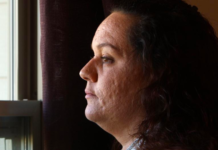To Treat Pain, PTSD and Other Ills, Veterans Try Tai Chi
From NPR: The U.S. Department of Veterans Affairs has launched a new program that offers wheelchair tai chi classes in order to help veterans manage...
Popular Drug Reveals the Issue of “Off-Label” Use
From The Washington Post: Despite major lawsuits and detailed reports pertaining to severe health risks associated with the antipsychotic Seroquel, the drug remains one of...
Older Patients Being Prescribed Risky Anticholinergic Drugs
From MinnPost: A new University of Minnesota study has found that anticholinergic drugs, including antidepressants, continue to be prescribed to millions of older Americans despite...
The Elephant in the Room
From Discursive of Tunbridge Wells: Psychologist Rufus May speaks about the often overlooked role of racism in the mental health system. People of color are...
10 Things I Learned in 5 Years Consulting With People Coming Off Psych Drugs
It's been over 5 years since I started offering non-medical consultations to people in the process of coming off or hoping to come off psych drugs. I wanted to share here some things I have learned in this process. Despite how far we have come, we have a long way to go in the quest to liberate all who wish to be liberated from psychiatry.
Most Direct-to-Consumer Drug Advertisements Do Not Adhere to FDA Guidelines
Few DTC drug advertisements fully adhere to FDA guidelines, the overall quality of information provided in DTC advertisements is low, and some advertisements market off-label indications.
The Chemical Imbalance Theory of Mental Disorders
In this video for AdvancingMentalHealth.org, Jeff Baker provides a detailed overview and critique of the chemical imbalance theory of mental illness.
Existential Therapy Assists Patients Withdrawing From Psychiatric Drugs
Confronting existential anxiety through “Basal Exposure Therapy” shows promising results in people withdrawing from psychotropic drugs.
New Programme Supports Withdrawal From Antidepressants
Manasa Ayurveda has launched a new harm reduction based program that will support people in tapering from antidepressant drugs.
"Manasa Ayurveda aims to work collaboratively,...
Trauma, Memory, and Mental Health
In this episode of ABC Radio National's All In The Mind, Lynne Malcolm interviews three experts about the impact of trauma on our memory and mental health. One guest,...
‘Take Your Pills’ is a Fascinating Look at the Adderall Craze
From The Michigan Daily: Netflix's new documentary "Take Your Pills" examines the historical, cultural, social, and systemic factors that have shaped the ever-increasing rates of...
Mental Health Patients Overlooked in Compulsory Treatment
From The Sydney Morning Herald: A new review found that mental health patients' decision-making capacity is very rarely considered in court rulings on involuntary treatment.
"The...
A Quiet Drug Problem Among the Elderly
From The New York Times: Use of benzodiazepines has risen among seniors despite their increased vulnerability to the drugs' adverse effects.
"'Set aside the opioid issue,'...
CBT and Educational Intervention Reduce Chronic Pain, Study Finds
Research examines the effects of cognitive behavioral therapy (CBT) on experiences of chronic pain among low-income patients.
A Tale of Two Studies
With increasing evidence that psychiatric drugs do more harm than good over the long term, the field of psychiatry often seems focused on sifting through the mounds of research data it has collected, eager to at last sit up and cry, here’s a shiny speck of gold! Our drugs do work! One recently published study on withdrawal of antipsychotics tells of long-term benefits. A second tells of long-term harm. Which one is convincing?
The More Opioids Doctors Prescribe, the More Money They Make
An exclusive analysis by CNN and researchers at Harvard University found that opioid manufacturers are paying physicians huge sums of money — and that doctors with higher...
The Antidepressant Wars in the Post-Truth Era
We have at least some solid, incontrovertible evidence available to all that the claims about antidepressants in the press do not directly match the text of the source article in the Lancet. Nowhere in the original article did the authors make the extreme or even controversial claims appearing in the mainstream media.
Bill to Force Pharma to Disclose Payments to Advocacy Groups
From STAT: Last month, Senator Claire McCaskill released a report showing that opioid manufacturers had funneled nearly $9 million to patient advocacy groups between 2012...
The Poison We Pick
In this piece for New York Magazine, Andrew Sullivan traces the history of the use of opiates in the U.S. and explores the social, economic,...
Antidepressant Anarchy in the UK
In this blog, I want to give some personal reflections on the events of the last few weeks in relation to the Lancet antidepressant meta-analysis and the lodging of a formal complaint with the UK Royal College of Psychiatrists. The issue of antidepressant withdrawal has been brought into the public eye in the UK like never before. What happens next will be very interesting.
Whose Interests Does the Royal College of Psychiatrists Really Serve?
When you consult the Royal College of Psychiatrists' website it proclaims that one of its primary aims is to "improve the mental health of individuals, their families and communities" — thus, to act in the public interest. Recent events at the Royal College concerning its public position on the Cipriani et al. antidepressants study put that proclamation in serious doubt.
Pharma Backing of Advocacy Groups: A Call for Transparency
From HealthNewsReview.org: In light of the opioid crisis, lawmakers are growing increasingly concerned about financial conflicts of interest in patient advocacy groups. Ontario has enacted...
New Study Concludes that Antidepressants are “Largely Ineffective and Potentially Harmful”
A new study published in Frontiers in Psychiatry concludes that “antidepressants are largely ineffective and potentially harmful.”
Psychiatrists Warn Policymakers Benzodiazepine Overuse Could Lead to Next Epidemic
Although opioid addiction and overuse have garnered significant national attention, similar trends in benzodiazepine overprescription and overuse continue to go unnoticed.
Do Antidepressants Work? A People’s Review of the Evidence
After a meta-analysis of RCTs of antidepressants was published in Lancet, psychiatry stated that it proved that "antidepressants" work. However, effectiveness studies of real-world patients reveal the opposite: the medications increase the likelihood that patients will become chronically depressed, and disabled by the disorder.

































